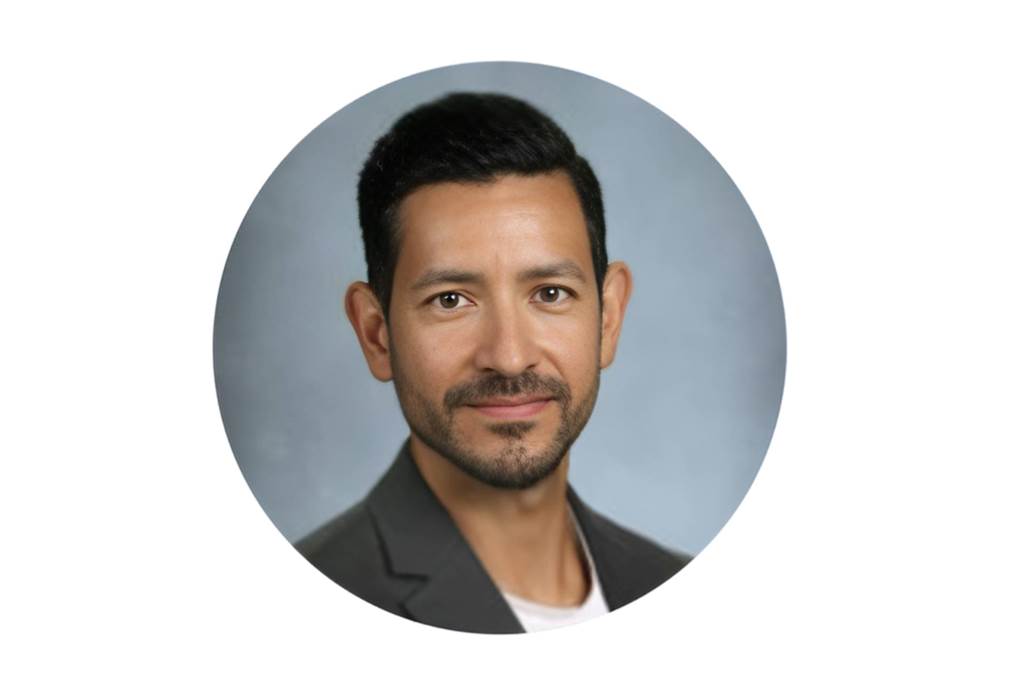Making Math Class More Equitable: Take Five with Diamond Montana at Lake View High School
22 November 2024
Mr. Montana wants his students to believe in themselves and their abilities.

Take Five is a series that highlights members of the CPS community who are going above and beyond for our students. All throughout the 2024–25 school year, we will be spotlighting our amazing CPS teachers! If you know a teacher who is making a difference, nominate them to be featured here.
Meet Diamond Montana, a freshman algebra and sophomore geometry teacher at Lake View High School! Now in his 25th year in education, Mr. Montana gets a lot of joy from his students’ energy and enthusiasm, and loves the moment when a student starts to experience success in math.
With a background in philosophy, Mr. Montana first got into education because he wanted to explore how people learn and develop critical thinking skills. As an educator, he works to empower his students to engage with critical math ideas and concepts as opposed to just memorizing how to solve the problems. Mr. Montana is also passionate about making math education more equitable and creating a trusting and welcoming environment in his classroom, especially for our new arrival students.
“Mr. Montana has done an amazing job using his practice to address systemic inequities in math education,” said Lake View Principal Paul Karafiol. “In addition to teaching a geometry class entirely in Spanish to our new arrival students, he is working to identify pathways for more students to take advanced math courses. He is a leader in our school, and a mentor to so many students!”
Learn more about Mr. Montana below!
Where does your passion for promoting equity in math education come from?
I'm Mexican-American, and when I was a student myself, I didn’t see many other people who looked like me in my advanced math courses. I always wondered why that was. I first got into the idea of equity when I was at Loyola University, because there’s a big focus on social justice and human rights there. Now that I’m an educator, I think about how we can best support our students who have been marginalized, and how we can empower them to make change in their communities. It’s important for us to make rigorous math education culturally relevant to our students so that they can have a solid foundation and be successful wherever they go.
Can you tell us about how you’re helping more students thrive in advanced math courses?
The first step is access (getting more students in the door of advanced math courses), but we need to go further to make math education truly equitable. I’m focused on giving students the ongoing support they need on a daily basis, as well as creating an environment where students feel valued and encouraged to bring their whole selves to class. I’m really focused on making coursework culturally relevant, as well as thinking about the language I use. I’m asking myself: How can I discuss these high-level, abstract concepts in the way that I speak in my regular day-to-day life? And how can I make sure that my students are learning the 21st-century skills of collaboration, perseverance, and problem-solving?
What are some lessons you’ve learned during your career as an educator?
I have learned so much from my students and colleagues. My students have such rich knowledge about life, and they’ve taught me how to be a great teacher. And our school community and other teachers, while always being welcoming, have continuously pushed me to learn more. I’m not perfect, and there’s always something more I can do to make my classroom more equitable, compassionate, and just.
What are your biggest goals for your students?
I want my students to leave my class loving math, and I want them to believe in themselves and their own abilities. I want students to be able to say “I am a math person,” and know that it’s okay if they get stuck, because they’ve developed enough resiliency to keep trying. I want them to take the power and ideas of math and apply them in ways that bring more justice and equity to our planet, community, and other people.
What do you like to do outside of work?
If I’m not teaching, I’m usually running or mixing music. And I’ll never stop learning—I’m currently reading Building Thinking Classrooms in Mathematics by Peter Liljedahl and Rethinking Disability and Mathematics by Rachel Lambert.
Related Stories
09 April 2025
A Look Back at a Milestone Year
As a new school leader, AP Digby's goal is to provide students with the opportunity to find joy in their learning and put a smile on their faces each day.
08 April 2025
It Takes a Village to Build a School Leader
AP Nuñez builds camaraderie with assistant principals across the District to help guide her through her first year as a school leader.
07 April 2025
AP = “All Purpose”: Creating Community Among School Leaders
AP Alvarez and AP Krzysztofiak are focused on creating community among other school leaders.
04 April 2025
From CPS Student, to Counselor, to School Leader: Get to Know AP Terry Batey
For AP Batey, seeing students' growth is the most rewarding part of his job.




